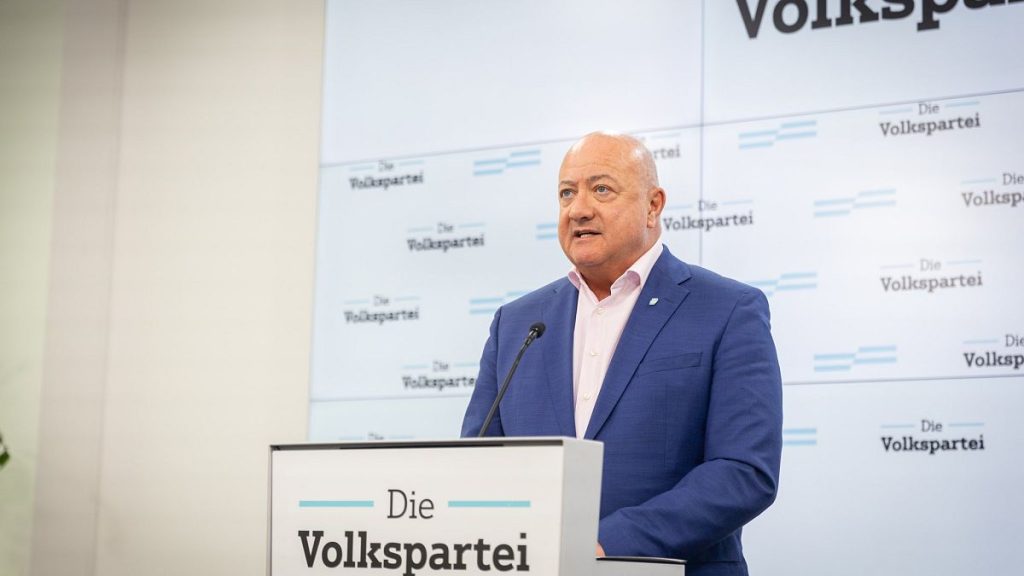The Austrian political landscape is undergoing a significant shift as Chancellor Karl Nehammer prepares to step down following the collapse of coalition talks. This marks the second unsuccessful attempt to form a government since the September elections, underscoring the deep divisions and complex negotiations within the Austrian political system. Nehammer’s resignation sets the stage for a period of transition and uncertainty, with the Austrian People’s Party (ÖVP) nominating Christian Stocker, the party’s General Secretary, as interim leader. Stocker’s appointment signals the ÖVP’s attempt to maintain stability and project an image of competence during this turbulent period.
The recent election results, which saw the right-wing Freedom Party (FPÖ) emerge as the largest party with 28.8% of the vote, have complicated the coalition-building process. The FPÖ’s strong showing reflects a growing trend of right-wing populism in Europe, and its potential inclusion in a governing coalition has raised concerns among other parties. The ÖVP, traditionally a dominant force in Austrian politics, has found itself navigating a challenging political climate, seeking to balance its conservative principles with the need to form a stable and functional government. The failed coalition talks highlight the difficulties in bridging the ideological gaps between the various parties, particularly in addressing key issues such as immigration, economic policy, and social welfare.
Nehammer’s decision to resign comes after protracted negotiations with the Social Democrats (SPÖ) and the liberal Neos party. The initial three-party talks aimed to create a broad coalition that could effectively govern and address the country’s challenges. However, the Neos party unexpectedly withdrew from the discussions, citing irreconcilable differences, primarily with the SPÖ. This withdrawal effectively scuttled the possibility of a three-party coalition and triggered Nehammer’s resignation announcement. The Neos’s departure underscores the fragility of the current political environment and the challenges of finding common ground in a fragmented political landscape.
Christian Stocker, the ÖVP’s designated interim leader, brings a wealth of political experience and a reputation for effective communication to the role. As General Secretary since 2022, he has been a key figure within the party, often serving as its public face in defending controversial decisions and navigating complex political situations. His legal background and parliamentary experience provide a solid foundation for leadership, and his calm demeanor and communication skills are seen as valuable assets in the current climate of political uncertainty. Stocker’s appointment is likely intended to provide a sense of continuity and stability within the ÖVP as it navigates the transition to a new leadership structure and prepares for future coalition negotiations.
The political turmoil in Austria reflects broader trends across Europe, where traditional party systems are facing increasing pressure from populist movements and fragmented electorates. The rise of the FPÖ, along with the difficulties in forming a stable coalition government, highlights the challenges of maintaining political stability and consensus in an increasingly polarized political landscape. Austria’s experience serves as a microcosm of the broader challenges facing European democracies, where the traditional political frameworks are being tested by shifting demographics, economic anxieties, and the rise of nationalist and populist sentiments.
The coming weeks and months will be crucial for Austria as it grapples with the leadership transition and the ongoing efforts to form a stable government. Stocker’s leadership will be tested as he navigates the complexities of the political landscape and seeks to build consensus among the various parties. The outcome of these negotiations will have significant implications for Austria’s future policy direction, particularly on key issues such as immigration, economic reform, and social welfare. The Austrian political scene remains fluid and unpredictable, with the possibility of fresh elections looming if a viable coalition cannot be formed. The ultimate success or failure of these efforts will have profound implications for the country’s political stability and its ability to address the pressing challenges it faces.

